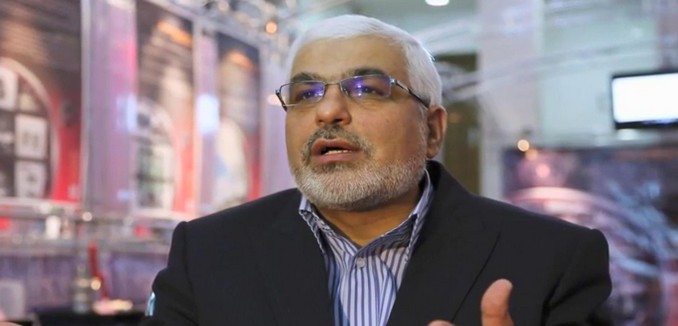The head of Iran’s atomic energy agency rejected the call of Director General Yukiya Amano of the International Atomic Energy Agency’s (IAEA) for Iran to submit to snap inspections of its nuclear facilities, the Associated Press (AP) reported today.
Iran’s nuclear spokesman Behrouz Kamalvandi said Amano’s comments harm the delicate negotiations. “It would be much better if Amano only talked about the IAEA’s seasonal and monthly reports,” he said, according to state TV. …
Iran and the so-called P5+1 — the U.S., Russia, China, Britain, France and Germany — hope to reach a rough deal on the nuclear program by the end of March and a final agreement by June 30. Iran has called for a single-stage final accord soon.
Among the unresolved issues meant to be part of an agreement is a ruling by the atomic agency on whether Iran worked on nuclear arms in the past.
According to the AP, last year Kamalvandi said that Iran would consider such inspections.
Kamalvandi made his comments in response to an interview Amano gave earlier this month to VOA’s Persian service.
Iran’s nuclear spokesman Behrouz Kamalvandi was quoted Tuesday on Iranian state TV’s website as saying that snap inspections are “illegal.” He did not elaborate.
Kamalvandi was responding to the demand earlier this month by Yukiya Amano, the head of the International Atomic Energy Agency (IAEA), that Tehran agree to the inspections.
In an exclusive interview with VOA’s Persian service, Amano said he was confident that Iran and the P5 +1 would be able to reach a comprehensive nuclear agreement before the deadline. Asked about concerns that the IAEA lacks the necessary tools and authority to verify Tehran’s nuclear program, Amano said it was too early to comment but that he believes “there is a solution for every difficult problem.”
In an interview with PBS yesterday, Amano explained why inspections on short notice were essential to any effective nuclear deal with Iran:
JUDY WOODRUFF: And, so, well, let’s take the additional protocol first. Iran has agreed to some of this. What would that mean? We know it hasn’t been ratified yet in Iran, but they have, in essence, agreed to it. What would that mean if that’s carried out?
YUKIYA AMANO: I don’t anticipate that. Iran signed the additional protocol, and Iran implemented this additional protocol for some time, but it is not implementing the additional protocol.
What is the advantage of the additional protocol? With the implementation of the additional protocol, we can have access to the site which is not declared, for example, or we can request a short notice of inspection to the country. These activities are very useful to detect undeclared activities.
JUDY WOODRUFF: If you don’t get that, is this deal worth having? If you cannot have that kind of access, is this a deal that’s worth what it — all the effort that would have gone into it?
YUKIYA AMANO: I think the implementation of the additional protocol is essential to have the confidence in the peaceful nature of Iran nuclear activities.
Otherwise, we can give the assurance that the activities under — in the declared activities are in peaceful purpose, but we cannot say whether everything is a peaceful purpose or not.
In late January Amano stated that his agency could not confirm that all of Iran’s nuclear work was for “peaceful activities.” He has since blasted Iran for its unresponsiveness and failure to address questions that his agency raised about its nuclear program.
[Photo: WochitGeneralNews / YouTube ]




